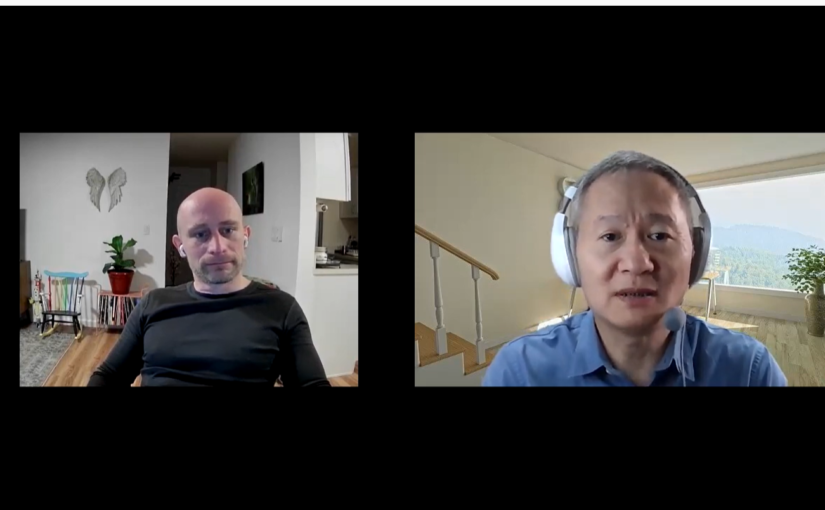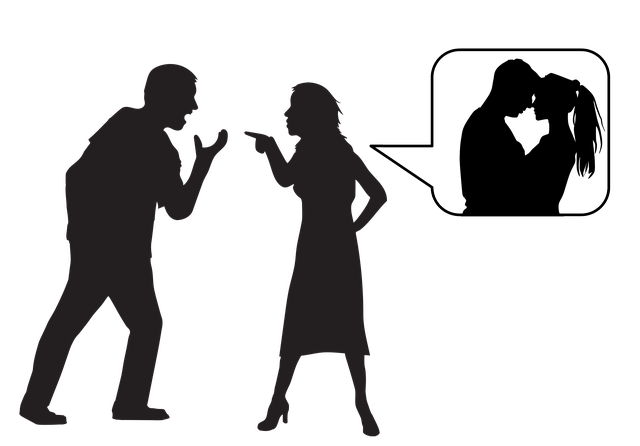Tag: Counseling Manila
Interview with Matthieu Villatte Part 1
“Confidence” in a Time of Crisis!
What is One Life Only Counseling Services?
Interview Conducted with Dr. Matthieu Villatte!
Perhaps we are making Philippine history here!
Here’s a video of my interview with Matthieu Villatte, PhD who is an Assistant Professor at Bastyr University in Seattle, WA in the United States.
He obtained his doctoral degree in psychology in France, where he was trained as a clinical psychologist. He moved to the US in 2010 to complete a post-doctoral fellowship at the University of Nevada, Reno under the mentorship of Steven Hayes, PhD.
Matthieu Villatte is the author of numerous books and chapters on mindfulness, acceptance, experiential therapies, and contextual behavioral science, such as the first manual published in French on Acceptance and Commitment Therapy and Mastering the Clinical Conversation: Language as Intervention, co-authored by Jennifer Villatte and Steven Hayes.
In the video, we talked about how the principles of behavioral therapy apply to everyday lives of people, the OFW or migrant worker phenomenon prevailing in the Philippines, as well as the pandemic!
How to start Marriage/Relationship Number 2
by Nathan Chua
New year, new dear? Yes, you can, as a couple, start your relationship all over again! You might be wondering how in the world can I, as a counselor, help you change your partner? Oh he’s been like that for a good part of two decades now! What gives me the audacity to claim I can change your partner? Well, there is a way my friends! And the wonderful thing about it, is it’s up to you, not your partner. Let me tell you how to curtail your long wait.
I don’t want to be the bearer of bad news, but paradoxically, the best way to change your partner is to accept him! Of course I’d be lying if I told you that this was guaranteed. But chances are, if you’re reading this, you’ve already tried many, many ways to change your partner, and they all haven’t worked. In fact, the more you try to change your partner, the more rigid he becomes. Most of the time, you find yourselves stuck in a verbal skirmish that could put to shame some lawyers you know, in terms of the tenacity and adroit argumentation that both you and your partner display.
Let me explain what I mean with an example. If let’s say your partner is not as neat and tidy as you are. You are now exhausted with all the cleaning up to do and the reminders you have to make to help your partner remember to do her side of the bargain. You then come to therapy and learn that these things are better off accepted and can take a long time to change, especially with the way you have been heretofore dealing with the problem. Based on this new understanding or awareness that what you have been doing is part of what keeps you stuck, you start laying off on the reminders and become more accepting of the fact that your partner will be hard-pressed to turn into the neat and tidy person that you want. There is a likelihood that your partner will notice the change in your attitude. You no longer holler and complain as much as you used to. She may notice that and begin to see how hard it is for you to be left alone taking care of house chores. Pretty soon you see her performing some of the chores to please you, precisely because you have accepted her with these differences she brings into the relationship.
Another tip is also to be more noticing of your partner’s efforts to change. If you notice that she has started doing some unexpected cleaning, be mindful enough to show her your appreciation. Give her a smile or a hug or say some encouraging words of appreciation. You’d know more than I do what makes your partner happy. Show her that you’re not missing the forest for the tree…maybe for the first time in a long long while.
Now, do you notice also that in both of these pieces of advice that I just enumerated, who is in control? Is it your partner or you? It is you. You have control over your actions of whether to accept your partner’s differences in the way she keeps her place tidy. You also have control over your behaviors that involve encouraging her by your appreciation.
So creating marriage number two is not about changing your partner, it’s more about changing you! And the most accessible parts of you that can be changed, are those that involve your choices to act. You may feel frustrated and uncomfortable, but in the end you have the option to keep whining and complaining and criticizing your partner, or start the process by coming to accept that certain things are hard to change.
As a summary of what you can keep in mind to help you change the way you have been approaching your relationship or marital concerns, here are some immortal words from Albert Einstein, “We cannot solve problems with the same thinking that we used to create them.”
Facing the New Year with Awareness, Courage, and Love
by Nathan Chua
The title of this post is not an original, at least the part that counts most. Many times in my graduate studies, I had wondered what, bottomline, counseling was about. I mean, what is it basically that we are trying to accomplish? At some point in my graduate studies, I thought it was forgiveness. It turns out that I will find an answer to this in my readings of Kevin Polk and his co-authors. It’s about helping clients to become more aware, to act courageously, and to do so lovingly.
Let’s take them one at a time.
Awareness:
Much of what we regret doing stems from acting in ways that are automatic. How often have we seen people commit homicides in this country, only to see them realize that they had lost control over their actions for a split second? There was even a case of a police officer who had a sterling record of service, who now has an indelible audiovisual account of him shooting a hapless middle-aged woman dead. His promising career that took him years to build was upended by a brief moment of rage.
Awareness is a word that I often heard around the graduate classes I attended. In ACT or Acceptance and Commitment Therapy, the word that is more often used to describe awareness is noticing. For me, the gerund form makes it an active pursuit that we can do from moment to moment. If we learn to practice noticing, then there’s a chance for a split second that the police officer I earlier mentioned would be able to choose more effective actions in that moment of rage. It could have averted the loss of two lives. One ended by a shot in the head, while the other was left to languish in prison.
Courage:
One thing ACT has taught me is that noticing is not just noticing or being aware of the difficult thoughts and feelings that we have. It also involves noticing the rest of us. By that I mean, we also notice other facets of the context that can move us in the direction of what is important to us in each moment. Being a complete human being with all its history and complexity involves noticing that part of us that can move towards important ends.
Over involvement in avoiding and controlling difficult inner experiences can lead us to tiring out of life and learning hopelessness is just around the corner anytime. The peculiar thing about us is that we are capable of doing things that we don’t normally expect from ourselves when the stakes are high enough to respond in ways that go beyond our own urges to be self-protective. We seem to be capable of running towards difficult inner experiences rather than run away when it matters. That shy, unassuming classmate of yours can all of a sudden show up in the news being called a hero for saving a complete stranger from a burning car. As Dr. Steven Hayes, the instigator of ACT, loves to say, “That’s just the kind of monkey we are.” So we are capable of doing courageous, selfless acts. It’s just built in. It can resurface in our consciousness if we become more noticing.
Love:
And as we do those courageous acts, we are also capable of seeing the world from other people’s perspectives. We are capable of empathy and acts of kindness in the face of challenging circumstances. You, my readers, do it every day! We can do inconvenient acts for the sake of someone we care for. We come to the side of those who mourn. We help out without anyone knowing. We care for our kids even if it means sacrificing our own convenience.
That in a nutshell can sum up what we do in counseling. Making us the whole human beings that we were meant to be based on how we were wired. It’s not easy being human because we have a very handy tool that can also cause us much suffering. The mind is there to do its job. Objectively noticing that it is neither a boss nor an enemy makes a big difference. We just need to learn to notice it doing its thing, face our fears and do things that matter anyway, and then do it with love and care for ourselves and others as well. In other words, we are all capable of awareness, courage, and love, but sometimes we are not aware, or aware that we are not aware sometimes. And this my friends, takes practice!
Have a more noticing new year to come and thank you for coming to this place for the past 2021.
Listen to this post on Spotify! Click here!
Don’t judge yourself…but how?
by Nathan Chua
Don’t judge yourself!
Well, how’s that done? Unfortunately, once we decide to not judge ourselves for judging ourselves, then what are we doing? We are judging ourselves for judging ourselves. It is not just that we judge, but we judge the judging. So we are judging “judging!”
Let’s do this well-loved exercise to discover how our minds work. If I tell you that you are a pretty okay person, notice what your mind does to that thought. If I tell you that you are the nicest, most wonderful person on the planet that ever lived, notice what your mind does with that thought. Finally, if I tell you, you are the worst and least kind person on the planet, notice what your mind does with that. If you notice, your mind will come up with different thoughts with every comment. It’s like it is arguing with itself and it will not stop!
In its earlier days, ACT was called comprehensive distancing. This means that in ACT, we are not so much interested in the content of our thoughts as the function of our thoughts. In order to do that, we need to separate ourselves from our thoughts. The first step is to notice our thoughts as just thoughts. They don’t have to be gotten rid of or believed or followed.
The key to more psychological freedom is to notice how the mind works. By freedom I don’t mean that we will eventually be free of our thoughts, but rather that we will become more capable of saying no to the dictates of our thoughts. Some of those dictates lead to compliance, while some lead to resistance and judging! In other words, noticing how our minds work helps us to become more capable of making effective choices for a better life.
Now let’s get back to the judging. The mind is an excellent judging machine. It has to because otherwise we would not be as successful a species as we would like. Why is this so? Judging has its uses. In order to survive longer, our minds have to judge the surroundings and look out for threats. Therefore, to know which ones are a threat and which ones are not, our minds would have to judge!
As Dr. Russ Harris illustrates, back when we were cave dwellers, we needed our minds to judge the presence of a threat to our survival. Our minds are there as survival tools that get us through inclement weather, save us from predatory animals, or whatever threats there may be. Unfortunately, that same function of the mind is not limited to external threats only. The human mind translates all signals of threat as one. Regardless of whether it is a physical external threat or an internal one, the signals evoke the same urges to respond in a certain way. The fear of an approaching bear is construed as the same fear when we have thoughts of a bear.
The subject of the work of an ACT therapist is to help the client notice that these mental processes are just that, mental. The noticing is followed by an open stance or a willingness to have such difficult experiences in the service of doing what is important to the client.
So there you are! If there was anything that you and I know about ACT as an approach to therapy, this skill of noticing thoughts as thoughts and judgments as judgments is key! Now how about judging the “judging?” Notice the judging and remember that this is just another function of the mind. There is nothing inherently wrong with judging “judging,” for that is what the mind does. What we can practice is to notice the judging as what it is, not what it says it is.
Our minds are like an overzealous friend who wants to be helpful. It is not our enemy. Think of it as your child just wanting you to be a comfortable and safe parent. Therein lies one of the keys to being mindful and living the mindful life. These parts of you are not your enemies but your friends or your children. Love them for what they are, not as what they say they are, and we’ll soon be on our way to a more loving and more compassionate existence.
Why some remain skeptical about counseling
by Nathan Chua
With the way many mainstream and social media entities have dealt with the topic of mental health, it may be surprising for some to know that therapy and counseling has yet to completely shake off the social stigma attached to seeking help for mental health problems. Although the pandemic could have reduced some of the skepticism, there are still many who are adamant about their views. I know some of you reading this will think, “Uh oh, here we go again, another article in defense of seeking professional help.” Quite the contrary though, and sorry to disappoint you, but this post is more about taking a long hard look at what the profession has done to produce such skepticism. Maybe it’s time to look inside our practices and see what our role is in contributing to this lack of confidence.
In his book, “The Anatomy of an Epidemic,” author and journalist, Robert Whitaker talks about how drugs have been abused to treat otherwise well-functioning individuals who suffered serious albeit temporary mental problems. As I have written before in a previous blog post, this is what Dr. Steven Hayes often refers to as the “DSMization” or biomedicalization of mental health care. Dr. Hayes even encourages dropping the term, “mental health,” for something that is more attuned to what the current science is showing. He suggests the use of mental resilience or mental skills instead. In sum, the current approach of classifying people into categories and subcategories of disease has done more harm than good. It has led to the abuse of medications that more often produce unnecessary and rather serious side effects. I have written about this in a past blog post, so let’s turn now to the crux of what I want to share in this one.
The second point which I want to emphasize for this post is what I heard Dr. Hayes said about our work in the helping profession that uses talking (or language) as a primary medium of change. At the time I heard it, I couldn’t understand what he meant when he said that in our field of work, experience predicts confidence not competence. I even took the time to post my difficulty understanding Dr. Hayes’ words in one of the social media groups I have belonged to since attending some workshops in the past. I didn’t really find any of the comments to my posted question to hit the nail on the head. Finally and luckily, I came across a podcast where Dr. Hayes himself explained what he meant.
It’s pretty much like learning how to shoot the ball in the game of basketball. Looking at how your shot went gives you the feedback you need to see how you can improve your shooting skills, or which shooting form works. Yes, feedback! Now can you imagine if you were shooting with a blindfold all along!
In my first nine years of practice, I had followed what was mostly being taught in mainstream psychology here in the Philippines. Of course, my clients eventually get better! But better at what? Well, mainly they had become better at reducing some of that anxiety, depression, etc. The rule of thumb can be summed up this way, you are here for counseling because you need help in removing some of that difficult feeling inside in order for you to do whatever it is you want moving forward.
At times then I was wondering, do my clients really get better because of my work, or are they just recovering on their own over time? The other side of it is, why are my clients coming back for sessions every time there is a new challenge in front of them? Furthermore, with the approaches I had tried, I had to read up on so many books and enroll in so many training modules in order to address the myriad of cases presented to me! I thought this feels quite like an impossible task! Is there anyone who can master all of these protocols for every mental health concern? Is that even human?
And of course I was getting good feedback, because clients do learn that these difficult emotions do have a shelf life! And I had become their shoulder to cry on when things get rough once again! So who’s the expert here?
Even while I was in business, I was always looking for better stuff. I remember in my 40s, I found myself hitting a ceiling with finding answers through my spiritual journey. And as I pursued further studies in counseling, I hit another ceiling! It felt like whatever I was doing, I could not attest to myself that these same methods I use with my clients do lead me to get past my own limitations!
Now I am not saying here that I have reached some kind of perfection in terms of the way I deal with my personal struggles. In fact, I am still learning up until this writing. But in Contextual Behavioral Science (in general and Acceptance and Commitment Therapy in particular), I think I have found a place where there is a way past that final ceiling. And guess what? If there was something available out there that proves to me that I can find a science that can even be better than what is available in contextual behavioral science, I will take it! Because what matters to me in my work is what actually works! That is why I am now an ACT therapist and a functional contextualist! I think it is by far the most scientifically sound approach and the one that will gradually take me through that hardest of all ceilings! This is the fire that burns in me and the reason why I am passionate about sharing this with you!
After Infidelity
by Nathan Chua
What now? Couples who have experienced a betrayal are often at a loss about what to do with the current state of affairs. Yes, there will be the initial shock and anger and bickering. At times, there might even be physical altercations. No doubt a betrayal is the most common reason for couples to come to therapy and is also one of the most difficult problems to come out of.
Many have been surprised to find out that the effects of infidelity can linger on for many years in spite of signs that the betrayed partner has already moved on. In some cases, it can also happen that the betrayed partner is unable to acknowledge the painful memories that still cast a shadow on the relationship. This may be for fear of revisiting old wounds and being labeled as unforgiving or being stuck in the past by the offending partner. There are multiple aspects that need to be addressed in the aftermath of an affair. I hope you find some hope in the tips I offer here on your road to recovery.
For the offended party:
Tip 1: You will very likely have flashbacks. Flashbacks are different from memories as they signal to the person that the abuse is still occurring in the present. Suspicions show up regularly. On the other hand, a memory is simply a recollection of events from the past which does not necessarily have to be acted on or suppressed. Betrayed partners, if the flashbacks last long enough, will begin to wonder if there is something wrong with them for being unable to move on from the hurt. In fact, there are quite a number who have actually seen a doctor to get medication for their symptoms. The drawback here is that even as these flashbacks are to be expected, many end up only getting temporary relief from the medication. They now not only have to worry about the flashbacks, they also get concerned about the fact that they are still having them in spite of the medication. Frequent fights that seem to come out of nowhere can result from the self-stigma that happens due to frequent failed attempts at suppressing painful memories.
Tip 2: Your partner, if they are sincere, will feel guilty about the transgression. The more you attack them the more they would want to withdraw from the conversation. Unfortunately, the more the offending party withdraws, the more the betrayed partner feels insecure and suspicious of the silence or the dismissive remarks. This is the loop that couples end up experiencing because of their inability to cope in more effective ways.
Tip 3: Get in touch with your softer emotions that are normally hidden underneath all that anger and hatred. Think about what you want to stand for at this moment. Ask yourself, “What would you like your kids to see in how you confront difficult situations such as these? If you were being the person you want to be in these challenging times, what would you say to your spouse?”
For the Offending Party:
Tip 1: Realize that your partner has gone through a form of trauma as some experts would say. Your partner is not doing this on purpose. It is impossible to predict how long the effects will last on your partner. Your partner will never be able to forget what happened but you can both start building new memories of warmth and compassion. Your withdrawal will reflect coldness and a lack of sensitivity to someone that has been hurt very deeply.
Tip 2: Validate your partner’s feelings and avoid dismissive comments. Validation does not mean you agree with what your partner is saying. It is just a means to let your partner know that you understand what they are going through and will be there in times when the emotions become overwhelming for them.
Tip 3: The best way to react to such an unfortunate turn in your relationship is to be validating and reassuring. Many offending partners have problems tolerating the mood shifts that come with a betrayal. However the more impatient you get, the more your partner will suspect that you have yet to come clean.
Is it time to leave?
My training in couples therapy has taught me that there needs to be certain conditions for a couple to remain together. Of course, the default is always toward saving the relationship. Infidelity is solely the responsibility of the offending partner but the relationship itself is the responsibility of both. The betrayed partner is never to be blamed. At this point, the only recourse available is to find ways to recover in more effective ways.
Many couples experience a regeneration in their relationship after a betrayal. For one, with some help, couples can learn to treasure their relationship even more and not take things for granted. Secondly, couples can also learn how to get out of their respective comfort zones in order to speak more openly with each other. The things that they can learn in therapy can also serve them in the process of creating what some experts would refer to as marriage (or relationship) number two.
In my years of working with couples who have suffered from the effects of an affair, I have learned that recovery can be summed up in an old prayer written by Reinhold Niebuhr, which I will paraphrase here: When suffering and working through infidelity, it is important that we understand what is meant by having the serenity to accept the things we cannot change; having the courage to change the things we can change; and finally having the wisdom to know the difference.
Listen to the podcast version of this blogpost on Spotify! Click here!






